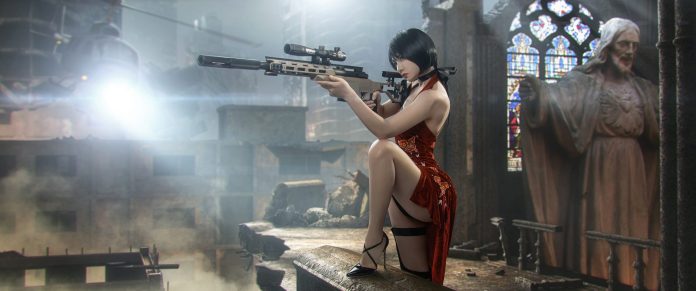These terrifying video games could create cinema gold while Hollywood keeps recycling the same zombie franchise
Video game adaptations have exploded in popularity, with major studios racing to transform beloved gaming properties into blockbuster entertainment. Yet Hollywood continues its bizarre fixation on the Resident Evil franchise, churning out mediocre zombie films while completely ignoring a treasure trove of superior horror games that could create genuinely terrifying cinema experiences.
The film industry’s tunnel vision has resulted in countless forgettable Resident Evil movies that rarely capture what made the games special. Meanwhile, innovative horror titles with compelling narratives, atmospheric tension, and genuine scares remain untouched by major studios. This oversight represents a massive missed opportunity for both filmmakers and horror fans seeking fresh, original content.
These overlooked games offer rich source material that could revolutionize how audiences perceive video game adaptations. From psychological thrillers to supernatural mysteries, the horror gaming landscape contains stories far more sophisticated and frightening than anything the overused zombie formula has produced in recent years.
Multiplayer mayhem meets slasher cinema
- Dead by Daylight transforms the classic cat-and-mouse horror formula into something uniquely cinematic. Players find themselves trapped in enclosed areas, desperately repairing generators while a relentless killer hunts them down. The game’s structure naturally lends itself to ensemble horror filmmaking, where audiences can connect with multiple characters facing impossible odds.
What makes this concept particularly appealing for adaptation is its crossover potential. The game features iconic horror villains from established franchises, creating opportunities for a shared universe approach that could unite beloved horror properties under one terrifying umbrella.
Underground masterpieces deserve recognition
- Fear & Hunger represents the kind of bold, uncompromising horror that mainstream cinema rarely attempts. This survival horror RPG follows four characters navigating an nightmarish dungeon while searching for their missing leader. The game’s grotesque imagery and relentless brutality could translate into the kind of visceral, unforgettable horror experience that pushes creative boundaries.
- Soma presents underwater psychological terror that combines existential dread with technological horror. Set in an abandoned research facility beneath the ocean, the story explores themes of consciousness and identity while delivering genuine scares through its android antagonists. The claustrophobic underwater setting offers filmmakers a unique visual playground for creating atmospheric tension.
YouTube sensations with cinematic potential
- Outlast became a YouTube phenomenon precisely because of its ability to genuinely terrify players. The story follows a journalist investigating a remote asylum, only to discover horrors beyond imagination. The game’s found-footage aesthetic and grounded approach to supernatural terror could create the kind of low-budget horror masterpiece that launches careers and spawns franchises.
- Amnesia: The Dark Descent pioneered the modern horror gaming renaissance that influenced countless titles. Following Daniel, a man with no memory trapped in a foreboding castle, the game masterfully builds psychological tension through environmental storytelling and innovative gameplay mechanics that force players to confront their fears rather than fight them.
Auteur visions waiting for screens
- P.T. represents what happens when visionary creators collaborate on horror projects. Hideo Kojima and Guillermo del Toro’s abandoned masterpiece created more genuine terror in its brief runtime than most full-length horror films achieve. The game’s innovative approach to supernatural horror and its connection to acclaimed filmmaking talent make it an obvious candidate for adaptation.
- Alan Wake and its recent sequel present horror through the lens of creative storytelling itself. The games follow a writer whose fictional creations begin manifesting in reality, blending psychological thriller elements with supernatural horror. The meta-narrative approach and cinematic presentation already demonstrate how effectively this property could transition to film.
Genre-defining classics deserve respect
- Inside showcases how atmospheric horror can work without traditional narrative structure. This wordless journey through a dystopian nightmare relies entirely on visual storytelling and environmental details to create an increasingly oppressive sense of dread. The challenge of adapting such abstract material could result in groundbreaking experimental horror cinema.
- BioShock transcends simple horror classification by incorporating political commentary, philosophical depth, and innovative world-building. Set in the underwater city of Rapture, the game’s exploration of objectivism and social decay provides rich thematic material that could elevate video game adaptations beyond simple entertainment into meaningful artistic expression.
The ultimate horror adaptation opportunity
- Silent Hill 2 stands as perhaps the greatest horror game ever created, yet Hollywood has largely ignored its potential. Following a widower drawn to a mysterious town by a letter from his deceased wife, the game weaves psychological horror, supernatural elements, and deeply personal trauma into an unforgettable narrative experience.
The game’s exploration of grief, guilt, and psychological breakdown offers filmmakers material for creating genuinely adult horror that respects audience intelligence while delivering authentic scares. With a planned 2026 adaptation finally in development, fans can only hope Hollywood finally recognizes the superior storytelling potential these properties offer compared to recycled zombie formulas.
Breaking the adaptation cycle
These ten games represent just a fraction of the untapped potential within horror gaming. Each offers unique approaches to fear, innovative storytelling techniques, and rich atmospheric details that could revolutionize how audiences perceive video game adaptations. Rather than endlessly recycling familiar zombie tropes, Hollywood should embrace these fresh perspectives on horror storytelling.
The gaming industry has evolved far beyond simple entertainment, creating complex narratives and emotional experiences that rival traditional media. These horror games prove that interactive entertainment can deliver sophisticated storytelling, compelling characters, and genuine artistic vision that deserves recognition beyond gaming circles.
